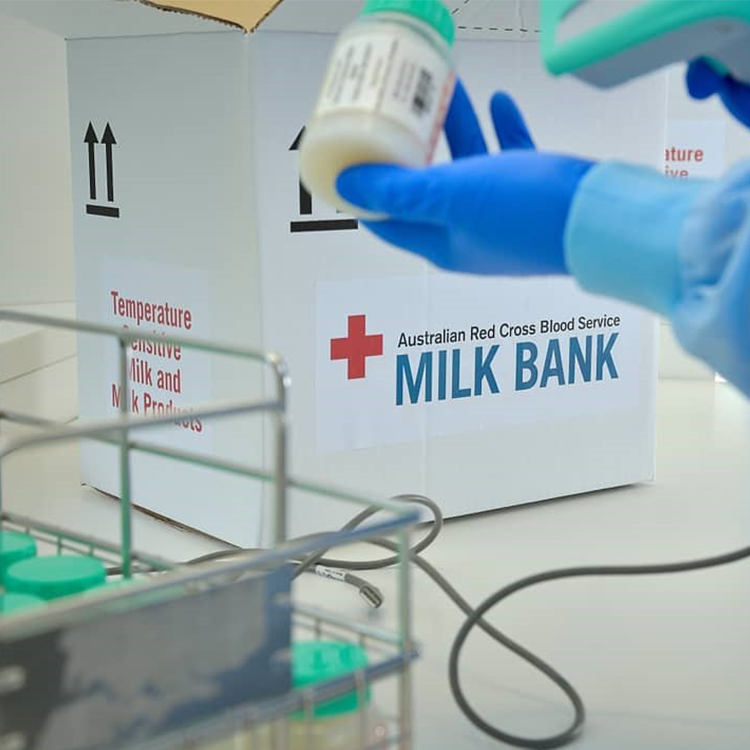World Day of Human Milk Donation: Generating Awareness for Milk Banks
MONDAY, MAY 17, 2021
World Day of Human Milk Donation is coming up on Wednesday, May 19. The annual day was created to promote the importance of donating human milk to milk banks.
Breast milk is important for all babies, but for premature and sick newborns, it provides vitally important health benefits and acts like a medicine that only mother's milk can provide.
Research has shown that the composition of a mother’s breast milk is different if her baby is born premature than if her baby was born full-term. It is tailored to the needs of a premature gut and is highly beneficial for baby.

The longer a premature or sick baby has access to breastmilk, the more profound and long-lasting the benefits.
- Breast milk provides better nutrient absorption, digestive functioning and nervous system development.
- Colostrum (first milk) is rich in antibodies called ‘immunoglobins’ and coats the gastro-intestinal tract, stomach and intestines, providing protection from viruses and bacteria.
- Mothers of premature babies produce milk that is higher in nitrogen, protein, lipids, fatty acids, vitamins, calcium and other vital elements that are important to the development of premmies.
- Breast milk antibodies protect from viruses such as gastroenteritis, sepsis and necrotising enterocolitis.
- Research shows that breast milk reduces the risk of conditions such as allergies, asthma and eczema.
- The varying composition of breast milk keeps pace with the baby’s changing nutritional needs.
- Breast milk has vital long-chain polyunsaturated fatty acids, which are essential to brain development.
Despite all the reasons why it is important for the health and development of sick or premature babies, to be given breastmilk, we also understand that due to many reasons, sometimes mothers own milk may not be available. The World Health Organisation recommends that donated breast milk is a better alternative to infant formula when mothers own milk (your baby’s optimum food) is not available. And there isn’t a setting where this is more vital than within a NICU or SCN.
“I donated three times over 7 weeks to the milk bank in Perth. My son was born at 23+5 weeks and sadly passed away at 3 days old. I decided, instead of dumping my large milk supply I would pump for other micro prems.” - Miracle Mum, Jessica
Recent research published in the Journal of Paediatrics and Child Health, in which Miracle Babies Foundation and Australian Red Cross LifeBlood Milk Bank were involved, surveyed parents of moderate to late preterm babies and studied their views around having access to donor milk banks.
The majority of respondents (75%) were interested in having the option to access donor milk from a milk bank for infants born moderate to late preterm; with more than half (63%) of the participants reporting that they or their partner had trouble making enough milk for their baby. Of those who struggled to make enough of their own milk, 29% said they sought out human milk from another source, more often than not, from a friend or family member.
For these reasons, some NICU babies will be given donor human milk during their hospital stay. It is an important part of a baby’s care and treatment plan and will only be utilised as an alternative during times when mother’s own milk is not available.
Some hospitals have their own donor milk bank whilst others have their donor milk supplied by the Australian Red Cross LifeBlood Milk Bank.



